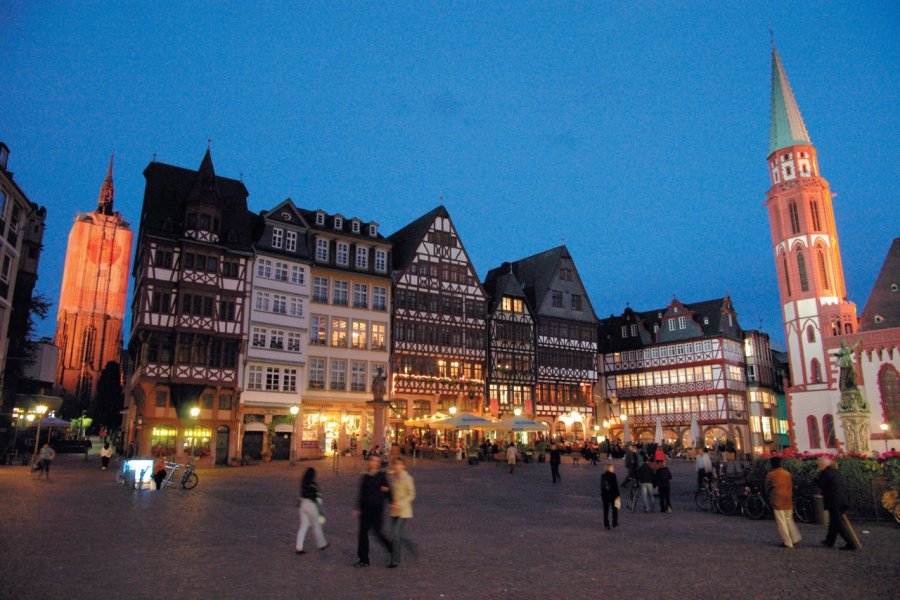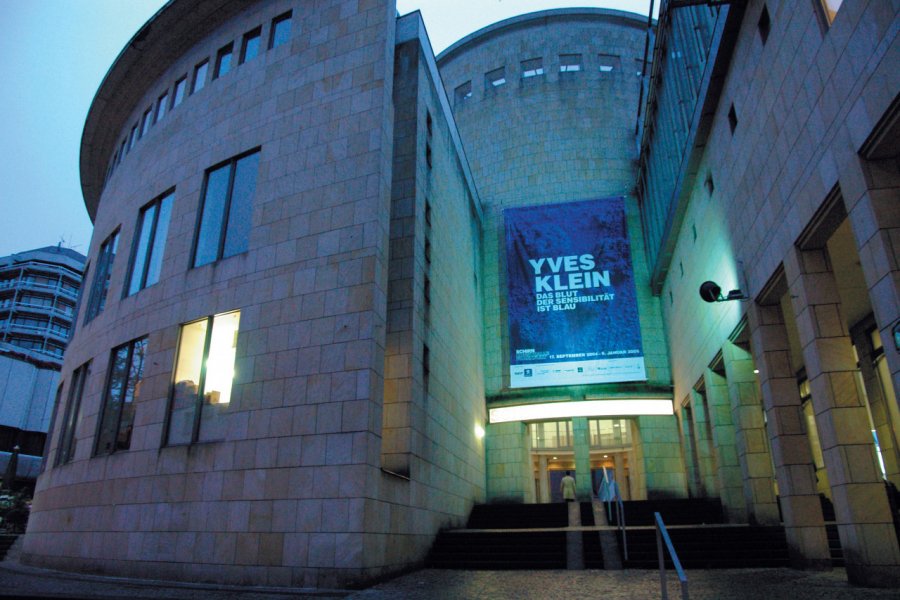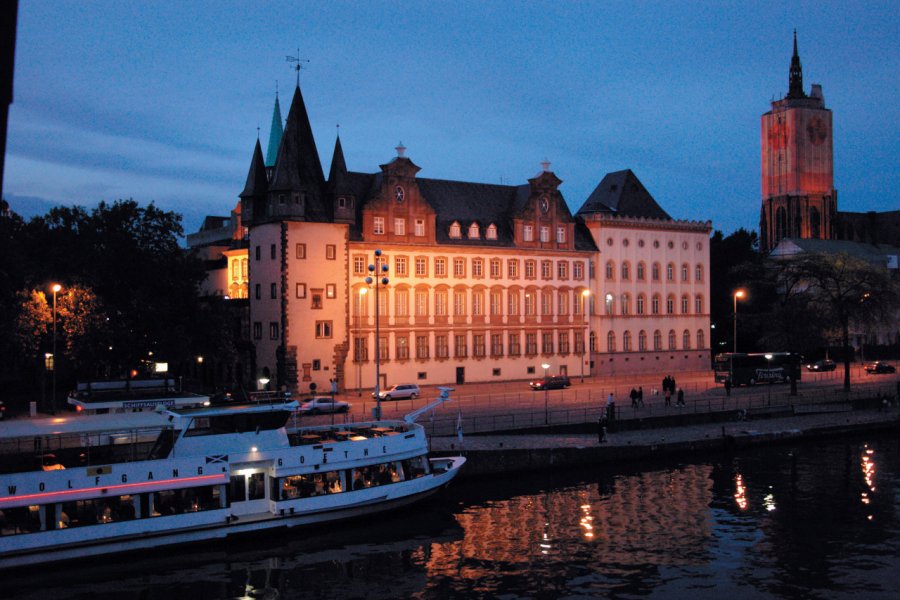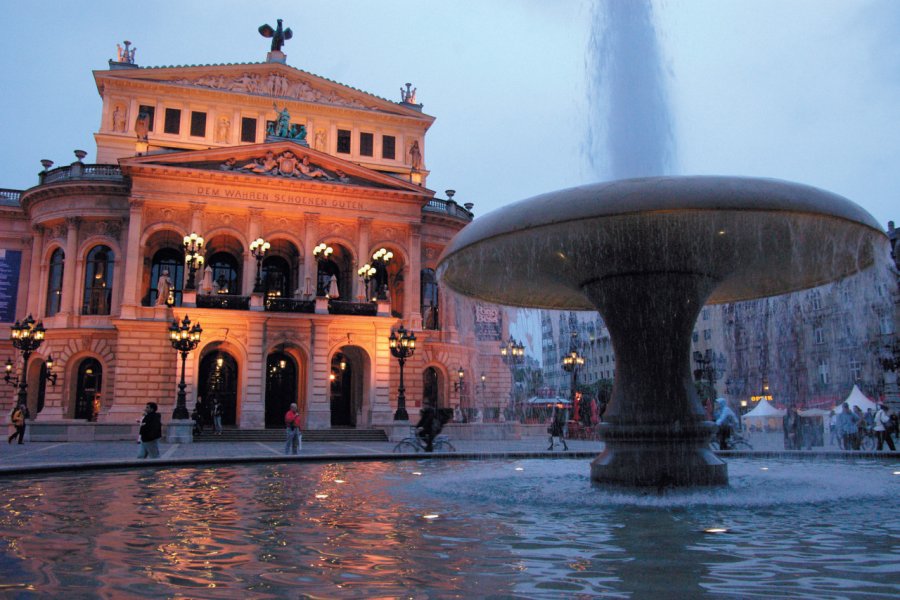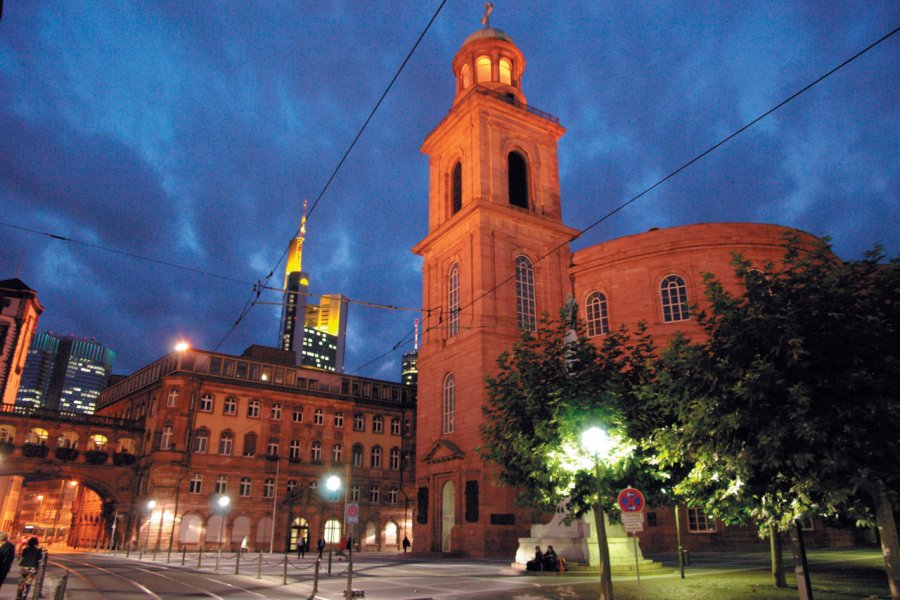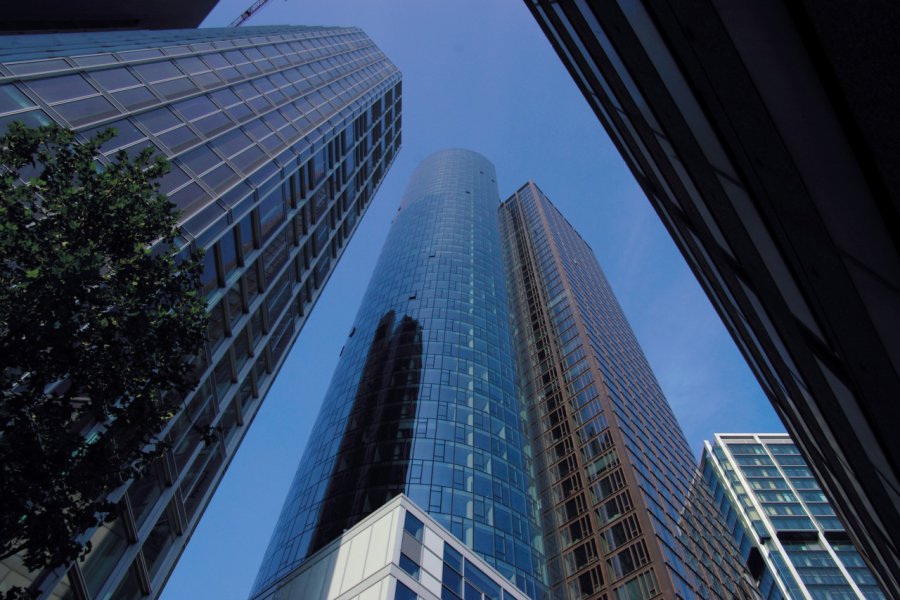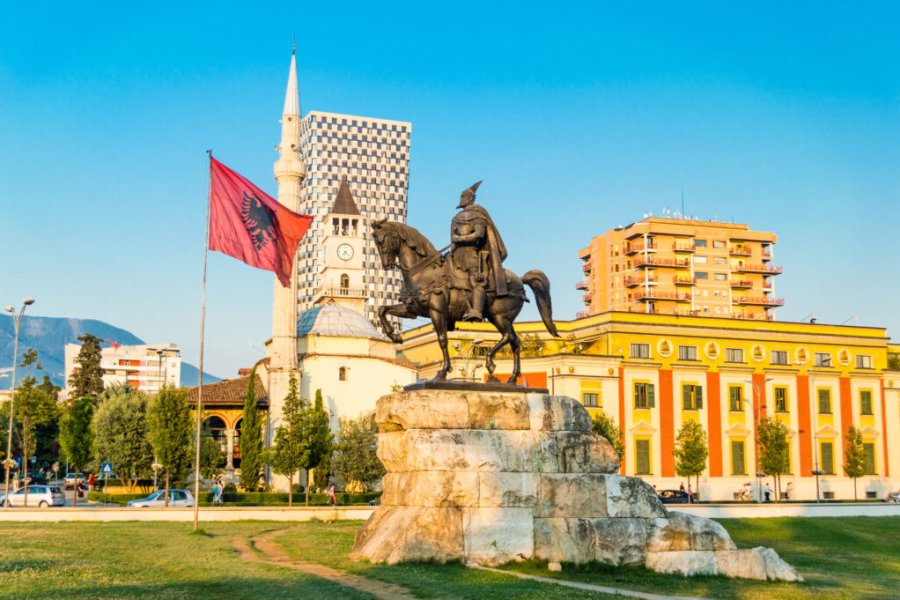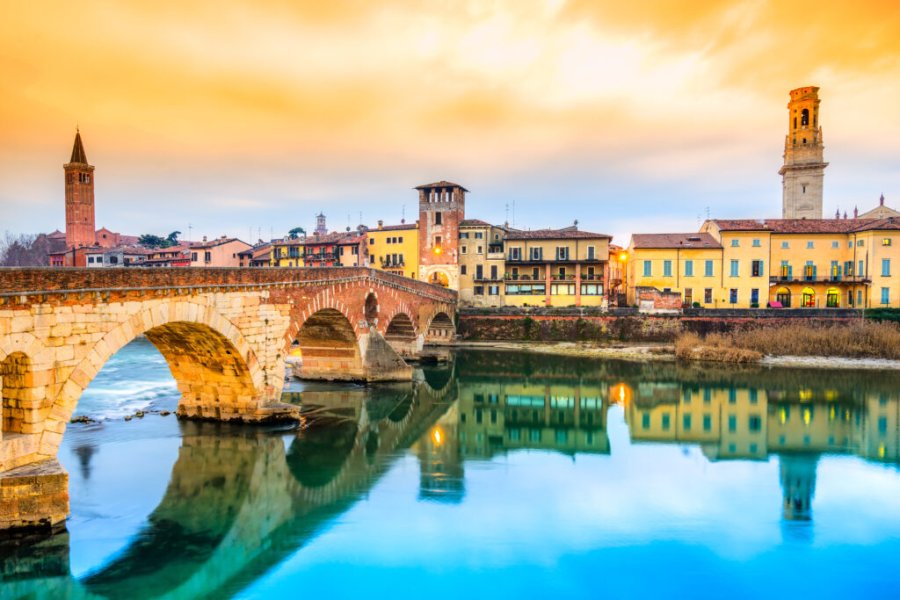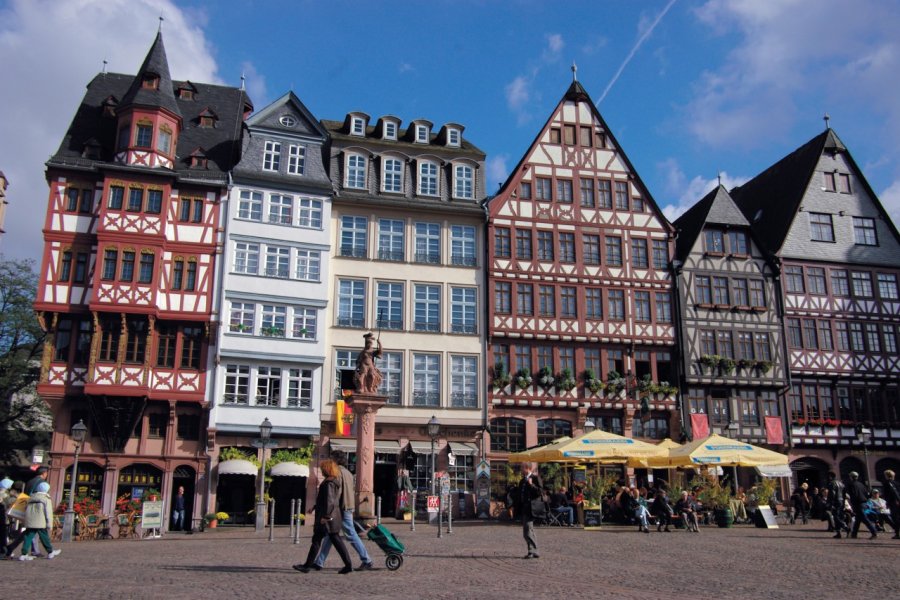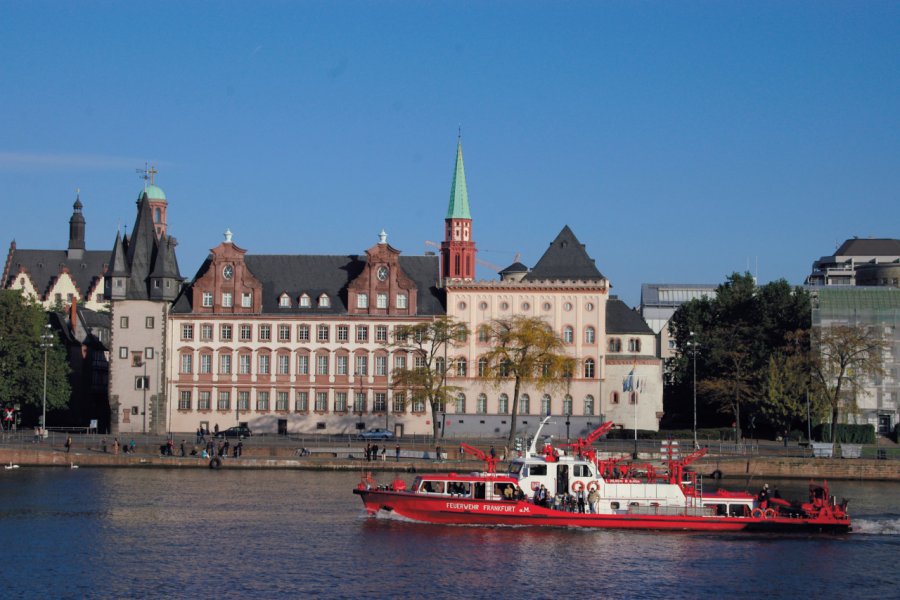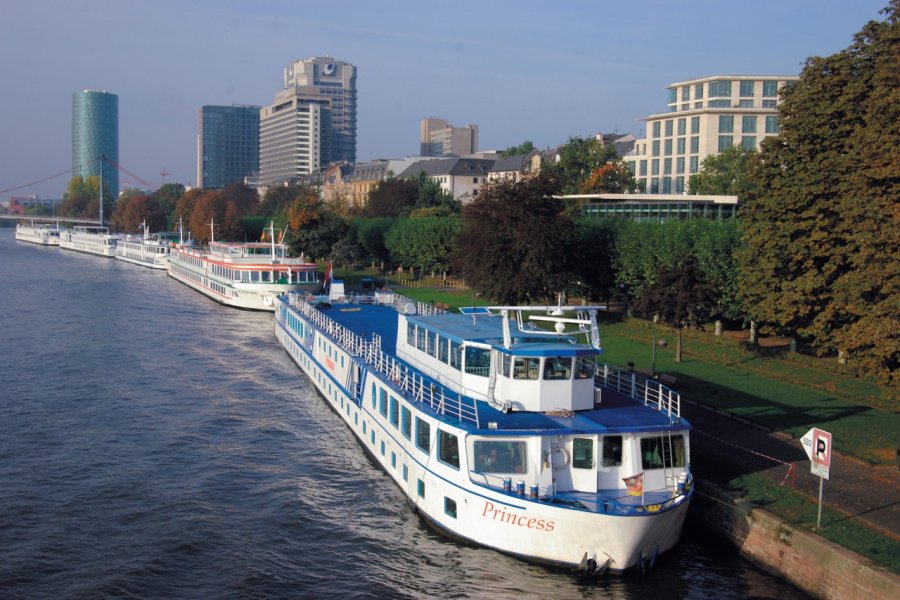Travel Guide Frankfurt (Am Main)
What to visit Frankfurt (Am Main)?
When to go to Frankfurt (Am Main)?
To find out when to go to Frankfurt, consider factors such as climate, seasonal pricing and local events. Frankfurt, located in Germany, offers a variety of distinct seasons, and the best time to go to Frankfurt depends on your preferences:
Mild, pleasant temperatures? Spring (April to June) and autumn (September to October) are ideal. You'll avoid the extremes of summer and winter.
Summer (July and August) in Frankfurt is hot, with temperatures often exceeding 30°C. It's a popular time of year for tourists, but accommodation rates are higher. If you enjoy festivals and outdoor events, summer is a good option.
Winter (December to February) brings colder temperatures, but also a festive atmosphere due to the Christmas markets. However, days are short and precipitation is frequent.
In March, Frankfurt hosts Carnival, a lively period of parades and festivities. It's a unique opportunity for globetrotters to discover the local culture.
Bear in mind that hotel and flight rates differ according to the season. To take advantage of lower rates and milder temperatures, consider visiting Frankfurt in spring or autumn.
Weather at the moment
Frankfurt's climate is oceanic, with distinct seasons:
Summers (June to August) are hot, with average temperatures around 25-30°C. This is the peak tourist season, perfect for exploring the city and enjoying outdoor festivals.
Winters (December to February) are cold, with temperatures around 0-5°C. The low season attracts fewer visitors, but you can still enjoy the magical atmosphere of Christmas.
Spring (March to May) and autumn (September to November) offer mild, pleasant temperatures, ideal for cultural visits and outdoor walks.
Frankfurt's weather can be changeable, so be sure to bring appropriate clothing.
Travelling to Frankfurt can be more or less expensive, depending on your travel style. The city is considered relatively expensive, especially if you opt for luxury accommodation and meals in high-end restaurants. The currency is the euro (EUR). ATMs and electronic means of payment are readily available. For travelers on a budget, you can find affordable hostels and delicious street food options at reasonable prices. Museums and cultural attractions also offer affordable rates. Tipping is not compulsory, but it's common to leave a small tip if the service is excellent, usually around 5-10% of the bill.
European Union citizens do not need a visa to travel to Frankfurt for tourist stays of less than 90 days. A passport valid for the duration of your stay is sufficient.
If you come from outside the European Union, visa requirements may vary. You may need a Schengen visa to visit Germany. We recommend that you check the specific requirements for your nationality with the German embassy or consulate in your country.
You should also take out adequate travel insurance for your stay in Frankfurt. Health insurance covering emergency medical care is strongly recommended for all international travelers.
For detailed information on visa and entry requirements in Frankfurt, contact the German embassy or consulate in your country.
Here are a few tips to ensure your well-being when traveling to Frankfurt:
No specific vaccinations are required to enter Germany, unless you are arriving from a region where diseases are endemic.
Are your basic vaccinations up to date?
Tap water is safe to drink in Frankfurt.
Remember to take out travel insurance to cover emergency medical care.
In the event of a health problem, you'll find numerous hospitals, clinics and pharmacies in Frankfurt that provide quality care.
If you have any particular medical problems, consult a health professional before your trip for advice tailored to your situation.
Practical information
- When to travel?
- Weather forecast
- Budget
- Formalities
- Health
- How to travel by yourself?
- How to get organized?
- Getting around
Media
How to go to Frankfurt (Am Main)? Our advice & tips
Taking a tour package to Frankfurt means choosing a travel agency that offers turnkey itineraries.
Check the package details. For example, check whether the price includes accommodation in a 4-star hotel, all meals, guided tours, entrance tickets and local transportation. Make sure the price is within your budget.
Check the agency's cancellation policy.
Take out travel insurance that covers trip cancellations, medical emergencies abroad and lost luggage. For example, make sure your insurance covers trip cancellation if you fall ill before departure.
Your travel agency will provide you with emergency contact details. Make sure you have them with you at all times.
Here are some practical tips from Petit Futé for travelling alone in Frankfurt:
Consult online travel resources like Petit Futé for information;
Use online flight search engines to find affordable airfare;
Explore a variety of accommodation options to suit your budget. You can book a downtown hotel, a friendly youth hostel, or a rental apartment for a local experience;
Buy a Frankfurt Card for unlimited access to public transport, including streetcars, buses and the S-Bahn;
Avoid leaving valuables unattended;
Establish a daily budget for your trip, taking into account meals, transport, tickets to attractions and unforeseen expenses;
Enjoy traditional dishes such as Schnitzel, German Bratwurst and Handkäse Frankfurt cheese.
And take part in guided tours, culinary workshops or cultural events to meet other travelers and locals!
In Frankfurt, travelers have plenty of transport options. Public transport, such as streetcars, buses and S-Bahn trains, is widely available. The Frankfurt Card offers access to public transport and discounts for attractions. Travelers can also rent bicycles, use Uber or cabs, or walk through the pedestrianized city center. Boats on the Main offer a unique experience. Make sure you have cash or a card for public transport, and use mobile apps such as RMV, Rhein-Main-Verkehrsverbund, to make travel planning easier.
Find unique Stay Offers with our Partners
Pictures and images Frankfurt (Am Main)
Discover Frankfurt (Am Main)
To find out when to go to Frankfurt, consider factors such as climate, seasonal pricing and local events. Fran...
Read more about it
Frankfurt's climate is oceanic, with distinct seasons:
Summers (June to August) are hot, w...
Read more about it
Travelling to Frankfurt can be more or less expensive, depending on your travel style. The city is considered...
Read more about it
European Union citizens do not need a visa to travel to Frankfurt for tourist stays of less than 90...
Read more about it
Here are a few tips to ensure your well-being when traveling to Frankfurt:
No specific vaccinations are...
Read more about it
Here are some practical tips from Petit Futé for travelling alone in Frankfurt:
Consult online...
Read more about it
Taking a tour package to Frankfurt means choosing a travel agency that offers turnkey itineraries.
Check...
Read more about it
In Frankfurt, travelers have plenty of transport options. Public transport, such as streetcars, buses and S...
Read more about it
